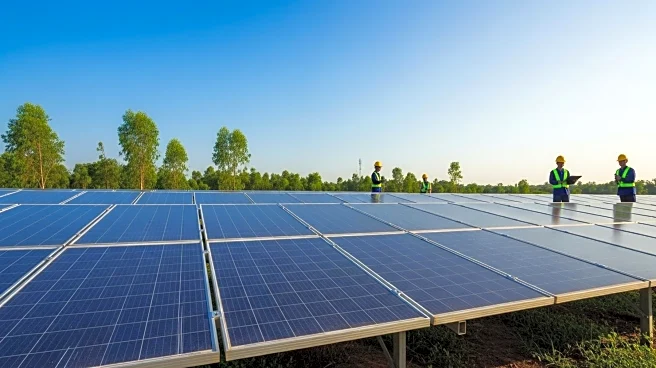What is the story about?
What's Happening?
Cambodia is striving to achieve 70 percent renewable energy by 2030, with a focus on building a skilled workforce to support this transition. During Clean Energy Week, experts emphasized the need for clean energy skills development and workforce readiness. The event highlighted the growing demand for expertise in renewable energy and energy efficiency, creating new job opportunities. However, the current labor market struggles to keep pace with this rapid transition. Government, academia, and private sector representatives discussed the challenges of developing national standards and ensuring equal access for women, rural youth, and underrepresented communities.
Why It's Important?
Cambodia's commitment to a low-carbon future presents significant opportunities for economic growth and sustainable development. The transition to renewable energy not only reduces carbon emissions but also creates employment opportunities, particularly for young people entering the workforce. However, the gap between the supply and demand for skilled labor poses a challenge. Addressing this mismatch is crucial for the successful implementation of Cambodia's renewable energy goals. The focus on gender inclusion and equal access to education and training can help break barriers and encourage more diverse participation in the clean energy sector.
What's Next?
To meet the challenges of workforce development, Cambodia needs stronger collaboration among stakeholders to align educational curricula with industry needs. Initiatives to provide practical experience and internships for students can help bridge the gap between academic training and industry standards. Continued investment in training and capacity building, particularly for women and underrepresented groups, will be essential to achieving Cambodia's renewable energy targets and ensuring a sustainable future.
















